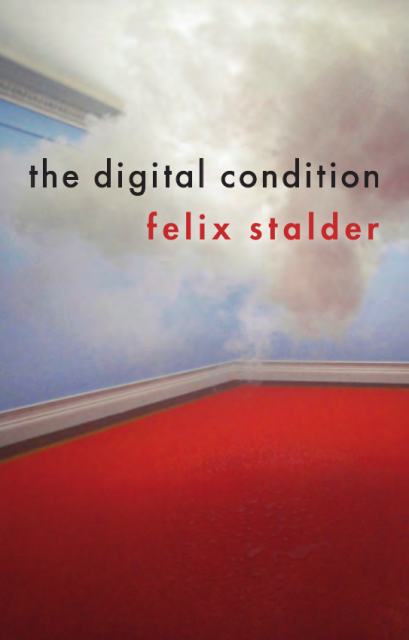
 Thursday February 15th,
Thursday February 15th,
17.30-19.00
Room: RHB 142
Richard Hoggart Building,
Goldsmiths University
London
RHB 142 is fully accessible.
Free, All Welcome
In his new book new book “The Digital Condition” (Polity Press, Feb. 2018) Felix Stalder argues that Referentiality, communality, and algorithmicity have become the characteristic cultural forms of the digital condition because more and more people – in more and more segments of life and by means of increasingly complex technologies – are actively (voluntarily and/or compulsorily) participating in the negotiation of social meaning. They are thus reacting to the demands of a chaotic, overwhelming sphere of information and thereby contributing to its greater expansion. It is the ubiquity of these cultural forms that makes it possible to speak of the digital condition in the singular.
The goals pursued in these cultural forms, however, are as diverse, contradictory, and conflicted as society itself. It would therefore be equally false to assume uniformity or an absence of alternatives in the unfolding of social and political developments. On the contrary, the idea of a lack of alternatives is an ideological assertion that is itself part of a specific political agenda. Indeed, advanced democracies are faced with a profound choice, to continue their long slide towards post-democratic authoritarianism or reinvent democracy for the digital condition.
Felix Stalder is Professor for Digital Culture and Network Theories at the Zurich University of the Arts, a member of the World-Information Institute and the Technopolitics Working Group, both in Vienna and one of the long-term moderators of
Hosted by:
Digital Culture Unit
https://www.gold.ac.uk/digital-culture-unit/
Centre for the Study of Global Media and Democracy
https://www.gold.ac.uk/global-media-democracy/














